Why St Nicholas works wonders for Russians
- Published
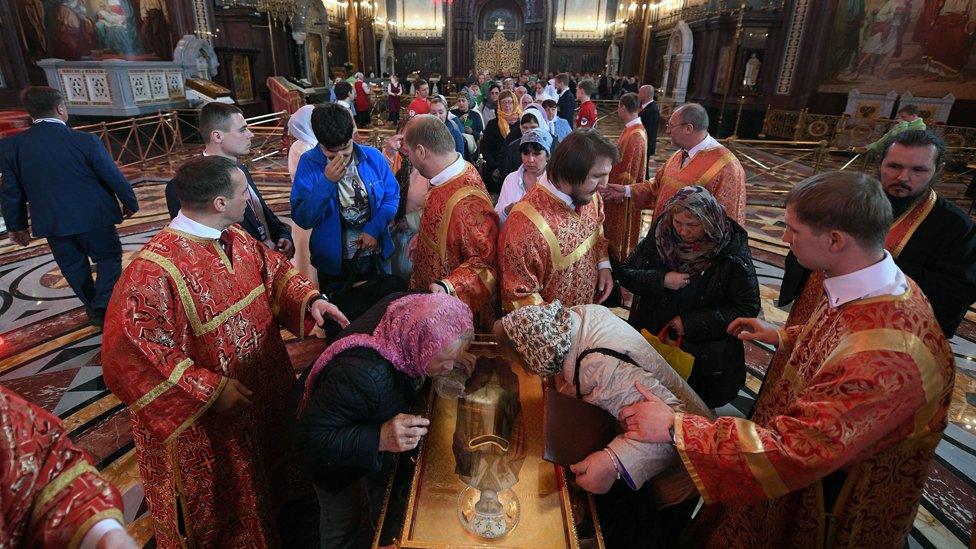
The Soviet Union turned its back on religion but modern Russia, under Vladimir Putin - the former KGB officer - has made religion, nationalism, patriotism and conservatism cornerstones of the Russian state, reports BBC Moscow correspondent Steve Rosenberg.
One hundred years ago, the Russian revolutionary Vladimir Lenin dismissed religion as an "abomination".
"Any religious idea, any flirtation with a god," he wrote, "is the most inexpressible foulness, the most shameful infection."
Ironically, after Lenin's death, his successors turned him into a god-like figure, with Lenin portraits and statues, and his embalmed body enthroned in a temple-like mausoleum on Red Square.
Encouraged by this dizzying personality cult, for decades Soviet citizens flocked to Moscow from across the USSR to pay homage to the late great Bolshevik. They would spend up to eight hours queuing outside the mausoleum, waiting for their chance to file past Lenin's wax-like corpse.
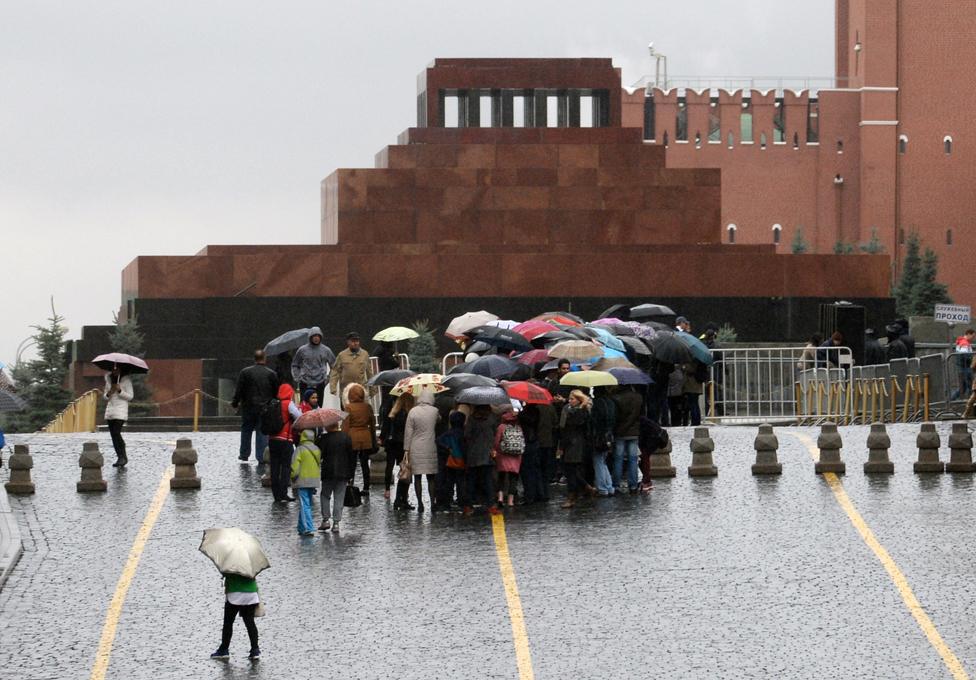
Tourists wait outside Lenin's mausoleum
I wonder what Mr Lenin would make of events this week in Moscow?
Once again Russians have been queuing for hours. But this time, not to get into the mausoleum. They've been lining up outside Christ the Saviour, the cathedral that the Communists once destroyed, but which was rebuilt from scratch after the collapse of the USSR. The queues have stretched for more than a mile.

Christ the Saviour Cathedral, where one of the saint's ribs is being displayed
It's here that I meet pensioner Natalya. It's taken her six hours to reach the front of the queue. Natalya clearly has the patience of a saint. Which is just as well, for it is a saint she has come here to see - and to venerate.
Saint Nicholas the Wonder Worker was a Greek bishop in Asia Minor in the 4th Century. He was famous for his kindness to children and would later inspire the legend of Santa Claus. He is the patron saint of children, sailors, and of prisoners who've been wrongly condemned. And he is the saint most cherished by Russian hearts. For according to the Church here, it is Nicholas who has saved Russia many times from catastrophe.
For more than 900 years, his bones have lain in a crypt in the Italian city of Bari. But now, after an historic agreement between the Catholic Pope and the Orthodox Patriarch, one of St Nicholas' ribs is on loan to Russia.
"I am so excited," Natalya tells me, "I have butterflies in my stomach. St Nicholas means so much to us."

Find out more
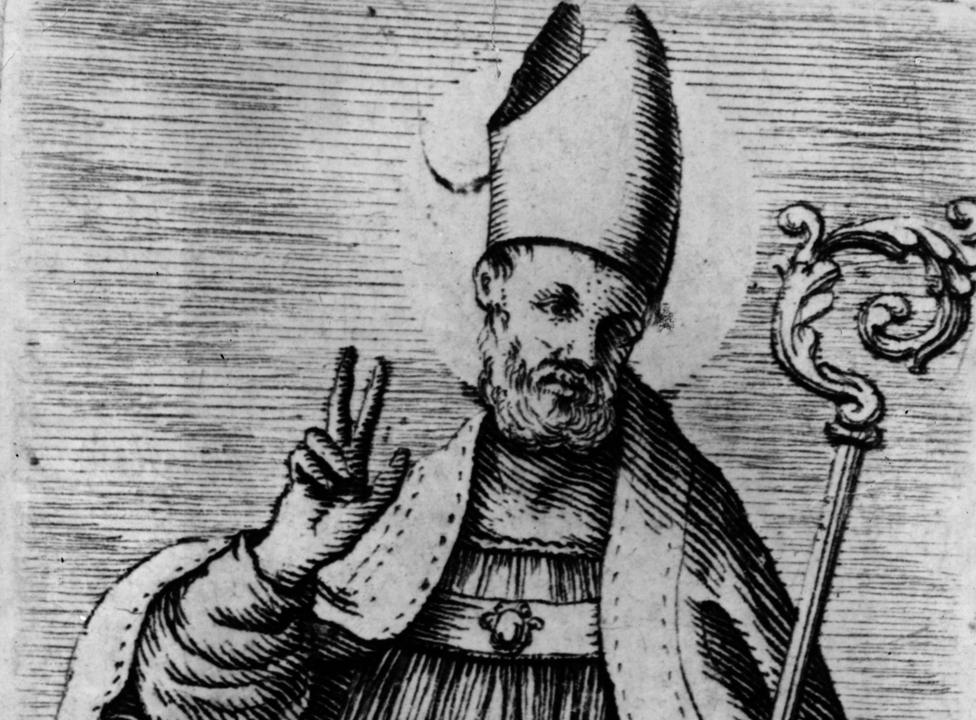
From Our Own Correspondent has insight and analysis from BBC journalists, correspondents and writers from around the world
Listen on iPlayer, get the podcast or listen on the BBC World Service or on Radio 4 on Thursdays at 11:00 BST and Saturdays at 11:30 BST

In the cathedral, I spot the golden ark, which was transported here from Italy amid great pomp and ceremony. The rib is inside, and I can see it through the glass cover. A long line of Orthodox believers is filing past. As the visitors approach, they make the sign of the cross and bend over the ark. Some place their foreheads on the casket's transparent top, then kiss the glass and move on.
As they walk away, they're handed free mini icons of St Nicholas, which have been blessed by the Russian Patriarch himself. Many of the visitors are here with babies and young children. I watch one woman lay her daughter down ever so carefully on her back on top of the ark - as if the mother is hoping that St Nicholas' miraculous powers will seep into the child's body from head to toe.
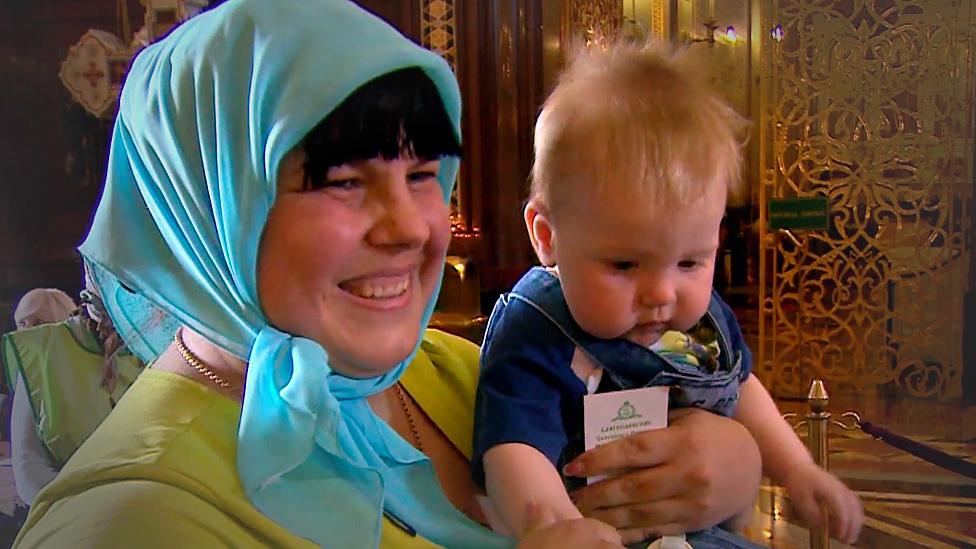
Svetlana with baby Vanya, who has been brought from hospital
Svetlana is with her little son Vanya, who is rather poorly right now. His arm is hurting. "I've brought Vanya here from the hospital," Svetlana tells me. "I want to give this a chance. Because I really believe in miracles."
And so, it seems, does Russia's president. For Vladimir Putin, too, has visited Christ the Saviour this week to venerate the relics of St Nicholas.
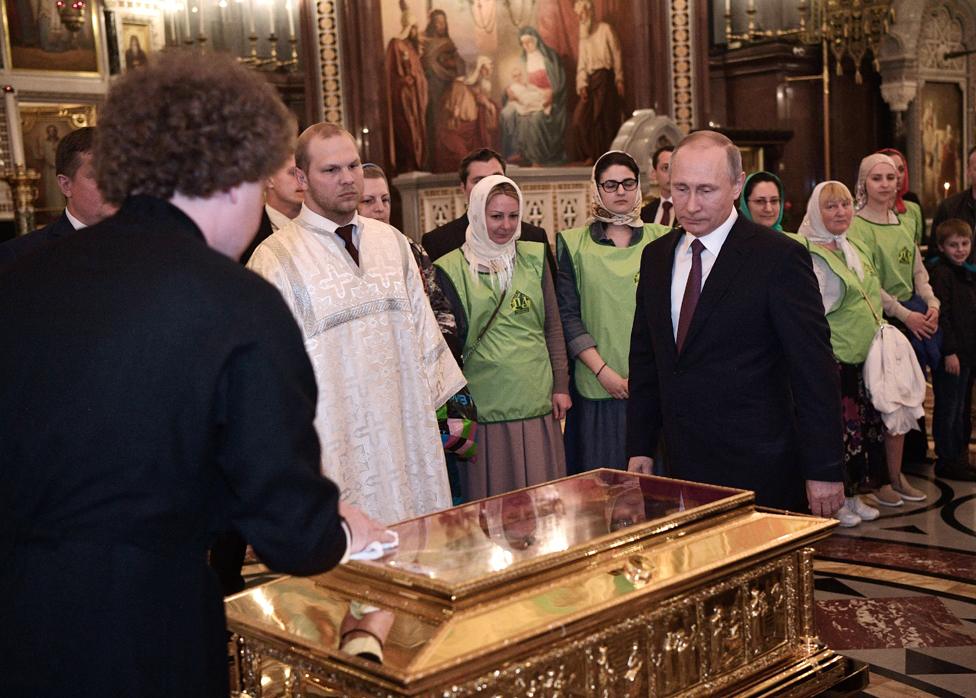
President Putin approaches the ark
The Kremlin leader placed his forehead on to the glass, then, rising, crossed himself three times.
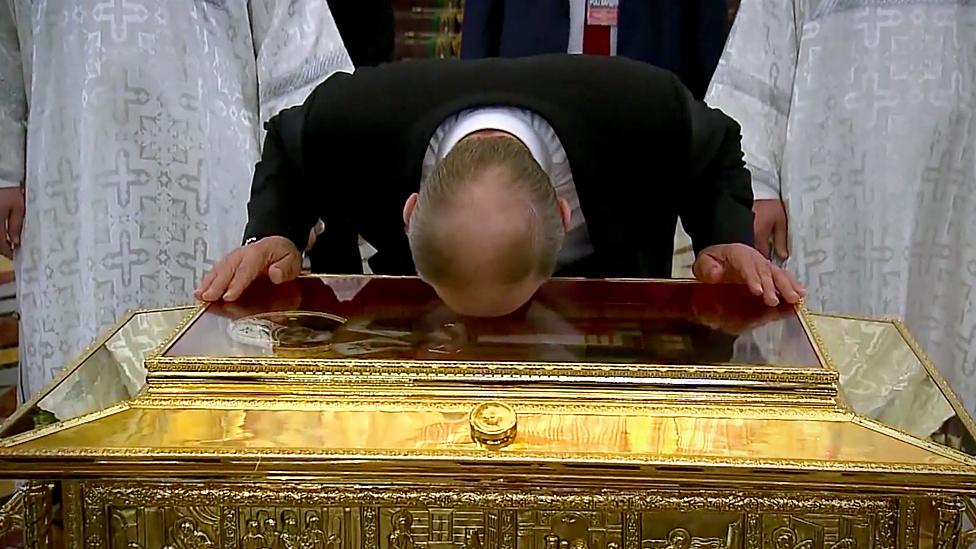
It is remarkable to think that back in Soviet times President Putin worked for an organisation - the KGB - which tried to suppress religion and which persecuted the religious. And yet, today, the Kremlin leader very openly embraces Russian Orthodoxy. He is said to have his own spiritual adviser, Father Tikhon.
What's more, under Vladimir Putin's rule, the Orthodox Church in Russia has grown in power and influence. That's partly because the loyal Church has helped to strengthen the Russian state and those in power. And, partly, because the Kremlin knows that people need something in which to believe. For a time, that was communism and socialism, but those ideas proved shortlived.
So, today, the authorities here are constructing a new ideology for Russia - it's a mixture of nationalism and patriotism, conservatism and loyalty to the state - and all of it underpinned by religious belief.
Which brings us back to St Nicholas and his rib. By displaying this bone in Moscow, Russia is not only honouring its most beloved saint. It is trying to excite and enthuse and unite the tens of millions of Orthodox Christians in Russia behind a common idea.
Join the conversation - find us on Facebook, external, Instagram, external, Snapchat , externaland Twitter, external.